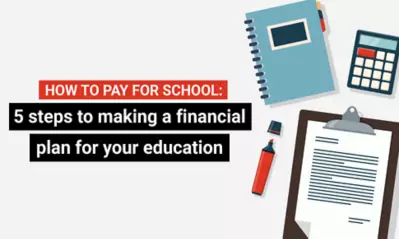How to get started homeschooling your child

Written by Michael Feder

Reviewed by Pamela M. Roggeman, EdD, Dean, College of Education

Before setting up a classroom at home, however, be sure you understand the resources and legal requirements of your state. You also need to determine whether you have enough time to teach your child or children at home.
It’s important to research your options thoroughly, in other words, before deciding if homeschooling is right for you and your family.
Research requirements for homeschooling
The first step to homeschooling is understanding the applicable laws and regulations of your state. Every state has different requirements related to what subjects must be taught and how parents must track progress or how students must demonstrate academic achievement.
As a homeschooling parent, you must research your state’s laws to ensure you follow them and stay within any applicable regulations. You can easily access these through the Home School Legal Defense Association .
If you fail to follow your state’s laws, there could be consequences. Depending on the severity of the violation, you may face fines, suspension of rights to homeschool or even criminal charges.
Balancing the legalities of this role are the responsibilities. It’s crucial to understand that when you homeschool your child, you are taking on the role of teacher. As a homeschool teacher, you will have certain duties aside from instructing the curriculum. These may include:
- Choosing curriculum and subjects to be taught
- Evaluating student progress
- Planning educational activities and a general schedule
- Assisting with research projects
- Providing support and guidance as needed
Before homeschooling, you might read up on other people’s experiences , since it can be new territory to assume such roles as disciplinarian, counselor and coach. Those roles, however, are not optional as a homeschool teacher, and it’s important to have a plan for how to enact them effectively.
Expand your skill set
In addition to the above credentials, other skills may be useful when homeschooling. These fall into two categories: soft and hard skills.
Soft skills include things like:
- Communication: Understanding communication styles and how to listen to students enhances any interaction.
- Patience: There will be good days and bad days when homeschooling. Patience is a crucial skill to have as a teacher in the classroom or at home.
- Problem-solving: Identifying problems and coming up with solutions is essential in education.
Hard skills refer to tangible knowledge like:
- Research methods: This refers to approaches that can help you gather data and resources for effective teaching.
- Curriculum creation: Knowing how to create and adapt a curriculum according to your child’s individual needs is key when homeschooling. (Educational degree programs review curriculum development and design.)
- Subject content knowledge: Depending on what you’re teaching your child, you may need subject-specific knowledge in certain areas, such as math or science. An education degree program can fill in the gaps for necessary content knowledge and also help you learn how to structure it in a way that’s appropriate for the student.
These are a few examples of soft and hard skills that may be beneficial when homeschooling. Other necessary qualities of a good teacher include organization, self-discipline and the ability to motivate students. The most successful homeschool educators hone these skills to provide their students with an engaging and enriching education.
Connect yourself and your student to other homeschoolers
Connecting is integral to any student’s education, especially for homeschoolers. (Kids want to be around other kids, even when learning from home.) Establishing a sense of community and connection between like-minded parents and students can enhance a homeschool environment.
Parents and guardians of homeschooled students can foster this interpersonal connection by:
- Connecting with local or online homeschool groups: These organizations allow parents to connect with other families and educators
experiencing the same challenges. In addition to sharing best practices, these groups can provide a much-needed respite for those who feel isolated in their homeschooling experience.
- Organizing field trips and extracurricular activities: Homeschooled students can benefit from joining local sports teams or taking special interest classes outside of the home. This will allow them to meet new people and form meaningful connections.
- Partnering with other homeschool families: Consider partnering with another family to create a learning group. This can be a valuable resource for students and parents, as it allows them to get together and collaborate on projects or activities.
Other ways to get social can include local learning groups, online forums or social media groups. Participation benefits both the student (in terms of the learning experience) and the parents and guardians (in terms of support).
Build your curriculum
After familiarizing yourself with state regulations and laws, it’s time to build a curriculum for your homeschool setting. Get creative and incorporate elements of what you and your children enjoy, such as:
- Reading books that relate to their interests
- Using projects found online (or create your own!)
- Exploring different materials such as videos and podcasts
These ideas can help you build a unique curriculum for your homeschool setting that is flexible to your children’s needs but still meets all necessary regulations.

ABOUT THE AUTHOR
A graduate of Johns Hopkins University and its Writing Seminars program and winner of the Stephen A. Dixon Literary Prize, Michael Feder brings an eye for detail and a passion for research to every article he writes. His academic and professional background includes experience in marketing, content development, script writing and SEO. Today, he works as a multimedia specialist at University of Phoenix where he covers a variety of topics ranging from healthcare to IT.

ABOUT THE REVIEWER
As dean of the University of Phoenix College of Education, Pamela Roggeman has spent over a decade in higher education teacher preparation in both the public and private sector. Her experience has included national partnerships that help to advance thought leadership in the field of education. Dr. Roggeman also serves as the President of the Arizona Educational Foundation’s Board of Directors.
This article has been vetted by University of Phoenix's editorial advisory committee.
Read more about our editorial process.
Read more articles like this:



